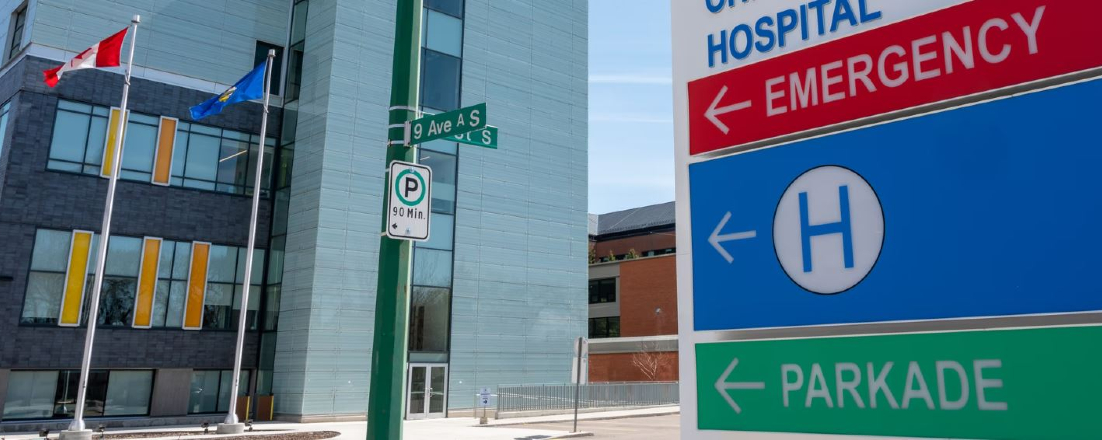
In the News
It’s Time to Treat Addiction in Emergency Rooms and Hospitals
- San Francisco Examiner
-
Focus Areas
Alcohol, Tobacco, Drugs & Mental Health -
Programs
CA Bridge -
Strategic Initiatives
Opioids

By Dr. Leslie Suen
Emergency departments diagnose and treat the most serious medical conditions — heart attacks, car accidents, strokes and, in pandemic times, COVID-19. Although emergency visits for alcohol and other substance use disorders are just as common and life-threatening, they remain largely unaddressed by hospitals.
Substance related emergency visits show no sign of slowing down for many reasons. Access to substance treatment programs was disrupted by the pandemic. Isolation and economic uncertainty worsened depression and anxiety, leading more people to turn to substances to cope. Moreover, fentanyl is quickly saturating the drug supply. As fentanyl is 50 to 100 times more potent than other opioids like heroin, its overdose risk is much higher. Fentanyl is also increasingly contaminating other drugs like cocaine and methamphetamine, driving up overdose rates.
These grim statistics aren’t surprising to hospital clinicians like me. In San Francisco, we’ve seen a surge of emergency visits and hospitalizations related to substance use. The City experienced a record-shattering 712 overdose deaths in 2020, more than twice the number of deaths from COVID-19. This year is on track to be no different, as over 400 people have already died in San Francisco in 2021.
Despite the commonality of substance use disorders, few hospital systems and clinicians are equipped to address them. Reasons include insufficient training among the healthcare workforce and hospitals’ lack of adequate addiction treatment infrastructure. This is a shame, especially as addiction is still highly stigmatized, including in medical settings. This stigma can prevent people from accessing care, as patients report delaying seeking medical care for fear of mistreatment until their illness becomes severe.
However, San Francisco is also at the forefront of addressing these issues, developing innovative models for hospital-based care for substance use disorders.
At San Francisco General Hospital, one of the hospitals where I work, any clinician in the hospital or emergency department can call the Addiction Care Team, also known as ACT. ACT has addiction medicine physicians, nurses and patient navigators. They engage patients in discussing their substance use goals, offer and initiate evidence-based, life-saving medications to reduce substance use, and connect patients to community resources and treatment programs.
Another emergency department-based intervention is the CA Bridge program. SF General is the first among over 130 hospitals in the state participating in CA Bridge, where emergency clinicians are trained to start patients on buprenorphine, a long-term medication to treat opioid use disorder. Anyone who comes into the emergency department because of an opioid overdose, withdrawal or another medical reason can immediately access this life-saving medication.
Before, patients going to the hospital for substance-related reasons had their acute symptoms treated, but all too often, the underlying addiction remained unaddressed. At best, patients were given a handout of community resources to call. Barriers to insurance, transportation, limited appointments and the onset of excruciating withdrawal symptoms are just a few reasons patients would fall through the cracks.
Both ACT and CA Bridge help save lives by lowering barriers to addiction treatment, starting medications right away and linking patients to resources outside of the hospital. This last piece is critical, as systems of mental, behavioral and physical health are siloed, especially in San Francisco. The programs work to streamline connections to community-based programs and enable treatment to begin during hospitalization.
Early studies of ACT and CA Bridge show promise, as patients who participate are more likely to engage in treatment after discharge. These programs are also quickly becoming the standard of care across the country.
Dr. Leslie Suen is a board-certified internal medicine physician and addiction medicine specialist, where she provides care for patients at UCSF, San Francisco General Hospital and the San Francisco Veteran Affairs Medical Center. She is also a health services researcher in the UCSF National Clinician Scholars Program.
Click below to read the full editorial in the San Francisco Examiner.
Originally published by San Francisco Examiner
More Updates


Safeguarding the Health and Wellbeing of Agricultural Workers in Monterey County: A 5-Year Glance at the COVID Pandemic & Lessons Learned

New Study Reveals Why Alcohol Use Increased During the Pandemic

PHIL Collective: Tools, Training and Resources for Collaborative, Cross-Sector Efforts to Improve Health and Equity
Work With Us
You change the world. We do the rest. Explore fiscal sponsorship at PHI.
Support Us
Together, we can accelerate our response to public health’s most critical issues.
Find Employment
Begin your career at the Public Health Institute.
